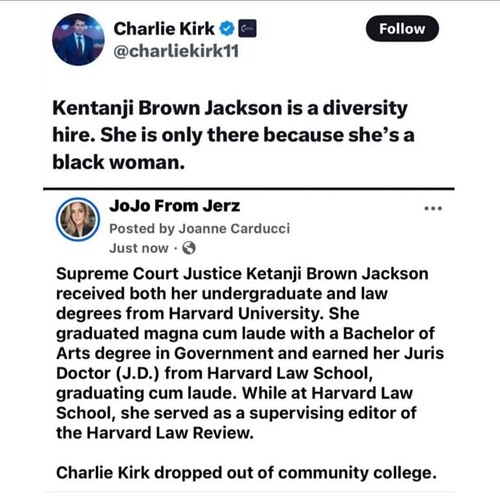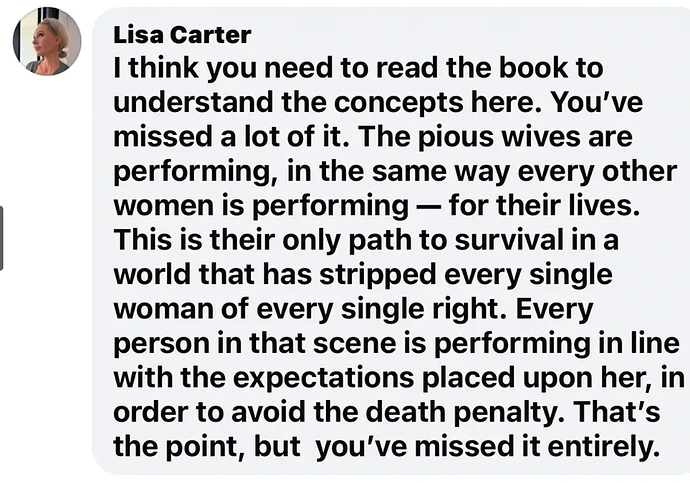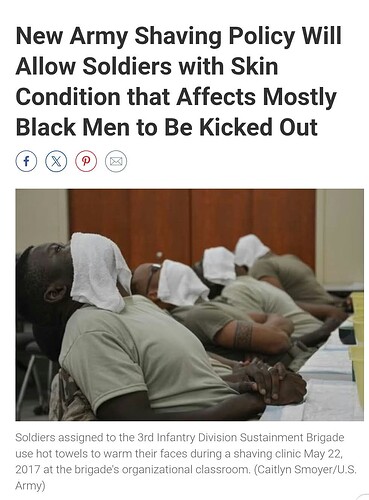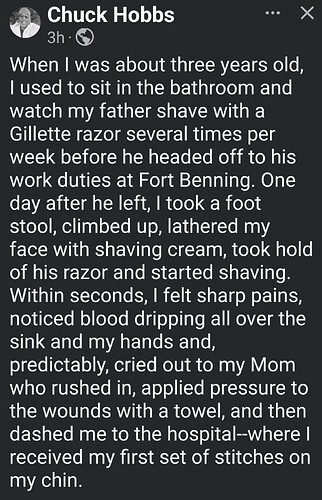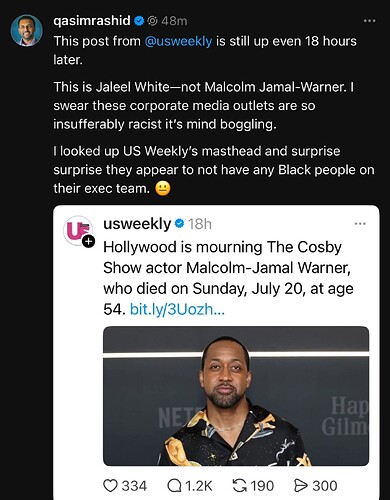What does FBA mean?
Foundational Black Americans, apparently…
There were Blacks in Colonial America who were never enslaved but still had a much more difficult and dangerous time (and lack of human and civil rights) so it’s good that they’re included rather than separated out.
In his efforts to demolish and disappear Black culture and the institutions that support it, Trump has made a loud admission: if he truly believed that Black culture were inferior, he would be leaving it on display and intact. Its mere existence would prove white supremacy. Trump knows the real threat of Black culture that has been shortchanged in the public DEI discourse, as his administration is a metaphor in itself for mythology of white supremacy: extensively kleptocratic, grossly inept and held in power by depraved and ruthless violence. As Haki Madhubuti, a BAM founding father, explains of the movement’s endgame: “The mission is how do we become a whole people, and how do we begin to essentially tell our narrative, while at the same time move toward a level of success in this country and in the world? And we can do that. I know we can do that.” Trump’s great fear is knowing we can, too.
The White Women in The Handmaid’s Tale Are Not “Victims,” They’re Patriarchy’s Middle Managers
They don’t just suffer under patriarchy. They enforce it for perks and power.
Excerpt:
Bottom line is that Lisa up there is excusing these women’s participation in white supremacist patriarchy by redefining it as purely coerced. And comments like these are designed to make us feel sympathy for them or, at minimum, absolve them of agency
It’s predictable. Tiresome. And honestly? A perfect mirror of real life.
Because this isn’t just about Margaret Atwood’s dystopia. It’s about how white women respond to any critique of their role in systems of violence.
Yes, white women are oppressed under patriarchy. That is real. Their rights are policed. Their bodies are regulated. Their safety is conditional, always contingent on male approval.
But here’s the part too many refuse to face: oppression does NOT erase complicity.
A little over 10 years later, I was in 9th grade when my peach fuzz turned into a jet black “G.I.Joe” doll looking full beard but this time, my father stood next to me and gave instructions about how to lather up and properly shave my face and neck until fully clean. But over the next several days, as the hair started to grow back, I noticed that these painful bumps started breaking out all over my neck and face. Pop noticed them too and one afternoon, came home with something called Magic Shave, a god awful smelling concoction that he thought may alleviate the razor bumps. Magic Shave only made matters worse, as the larger razor bumps were now surrounded by what seemed like thousands of tiny black bumps that itched like crazy. While I was a relatively confident 14-year old at the time, my confidence started to take a hit as some schoolmates started asking “Chuckie, what’s wrong with your face,” while one girl that I was fond of joked that I was starting to look like “The Elephant Man.”
Thinking that I was going to have to start wearing a mask or paper bag over my head to hide my shame, I told my parents about my dilemma and a few days later, Pop took me to see Dr. Armand Cognetta, a local dermatologist. I was diagnosed with pseudofolliculitis barbae (PFB) and after prescribing topical creams and penicillin, the doctor told Pop that my facial hair texture was curlier (nappier) than his, which was why he could use a straight razor and I couldn’t. Dr. Cognetta then suggested that an electric razor, like the ones that barbers use, may work better for my facial hair texture. That weekend, Pop came home with a Wahl electric razor, plugged that joint in, shaved my face and neck and sure enough, as the hair started growing back, there were no more bumps at all; I’ve been using an electric razor ever since and have never had a recurrence of razor bumps.
But my early experiences with shaving as a teen were enough for me to sympathize after reading United States Army figures that more than 40 percent of Black soldiers suffer from razor bumps, a fact that per the new Trump Defense Department rules, could lead many to be booted from active service all over a condition that they cannot control. Which is why I can only hope that common sense, something in short supply in Trump world, will trump this latest policy that has NO bearing on a Black soldier’s fitness to serve in the military.
It has no bearing, it’s just a very conveniently targeted excuse.
Lookingglass is one of the top theater groups in the city, so this annual event has some muscle behind it:
Reese Waters covers the actions of a woman at a laundromat (now being called “Kentucky Karen”), who made it clear she feels emboldened / protected because of ![]()
![]() .
.
Laundromat? Somebody is getting a chocolate bar thrown in her dryer if she uses the restroom or pops out for a second.

